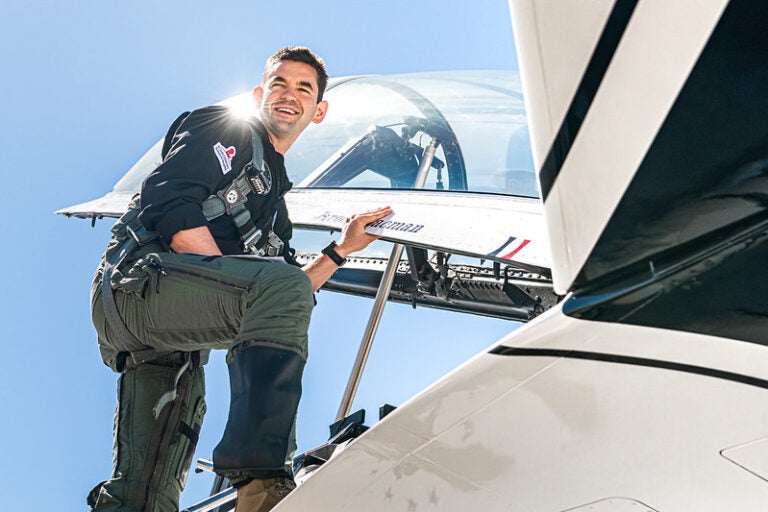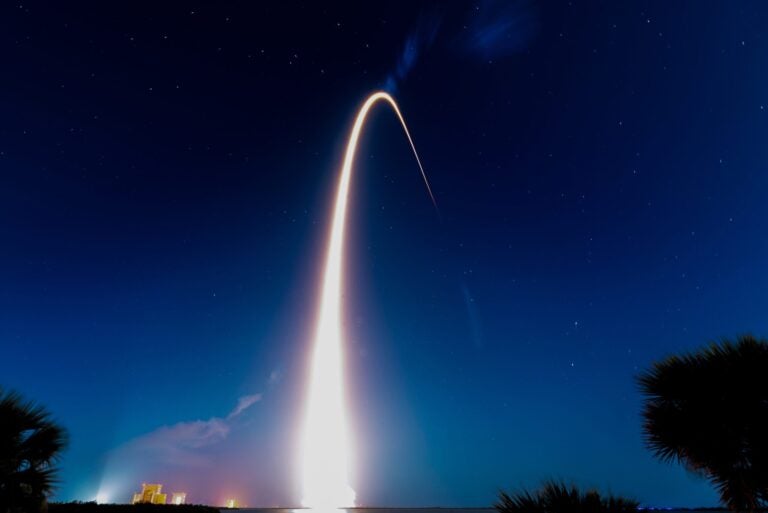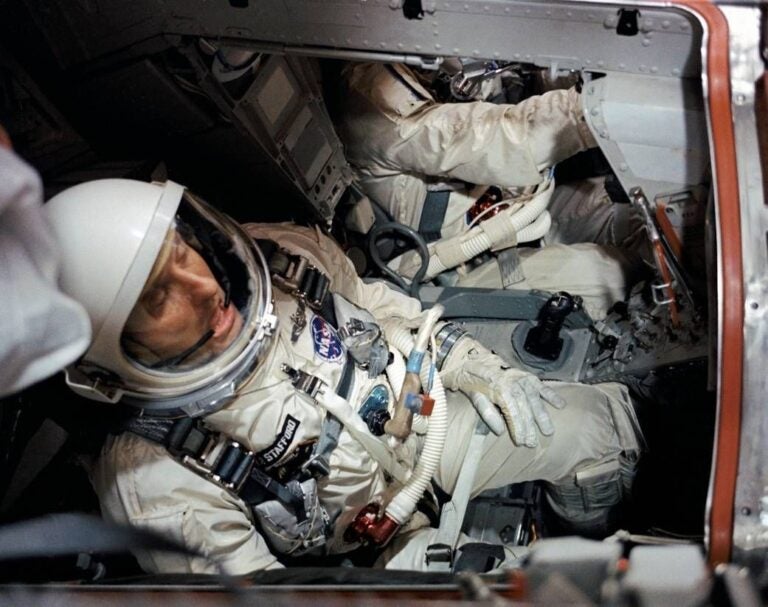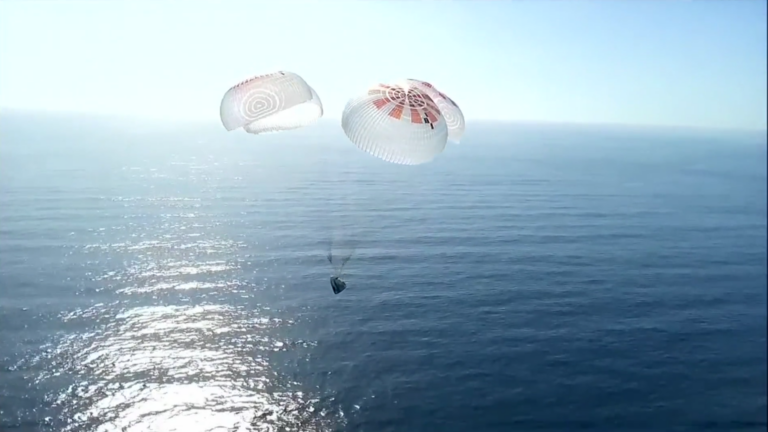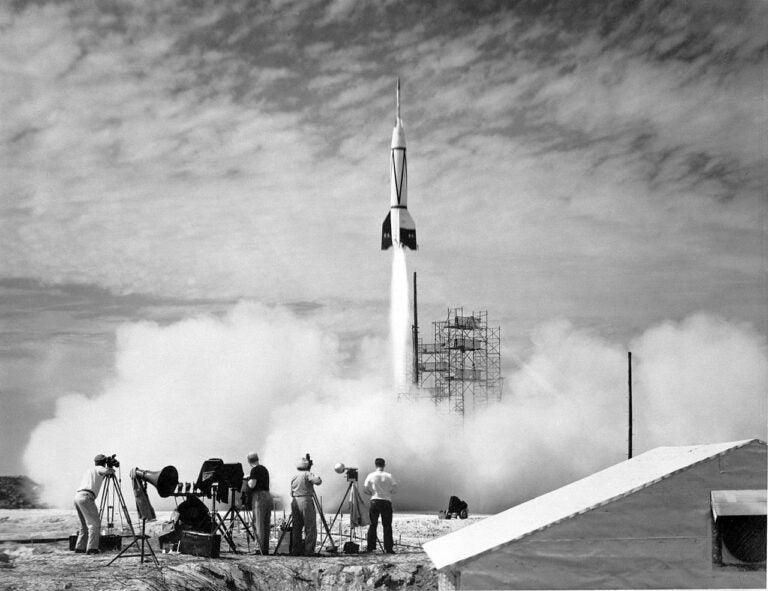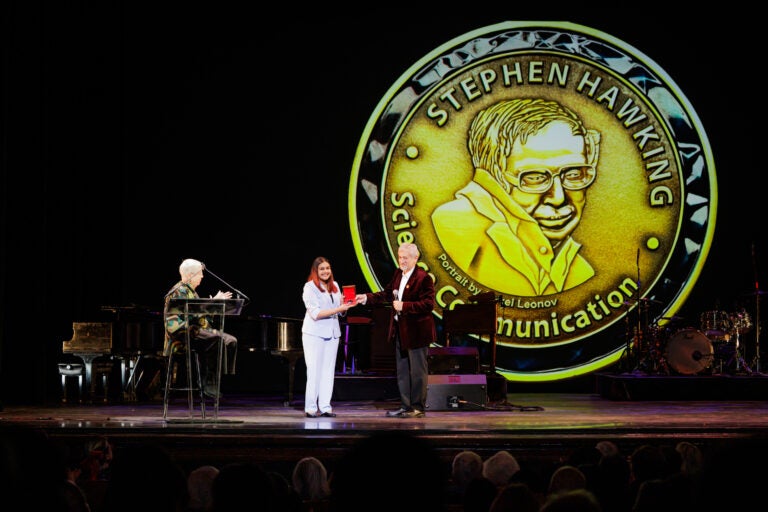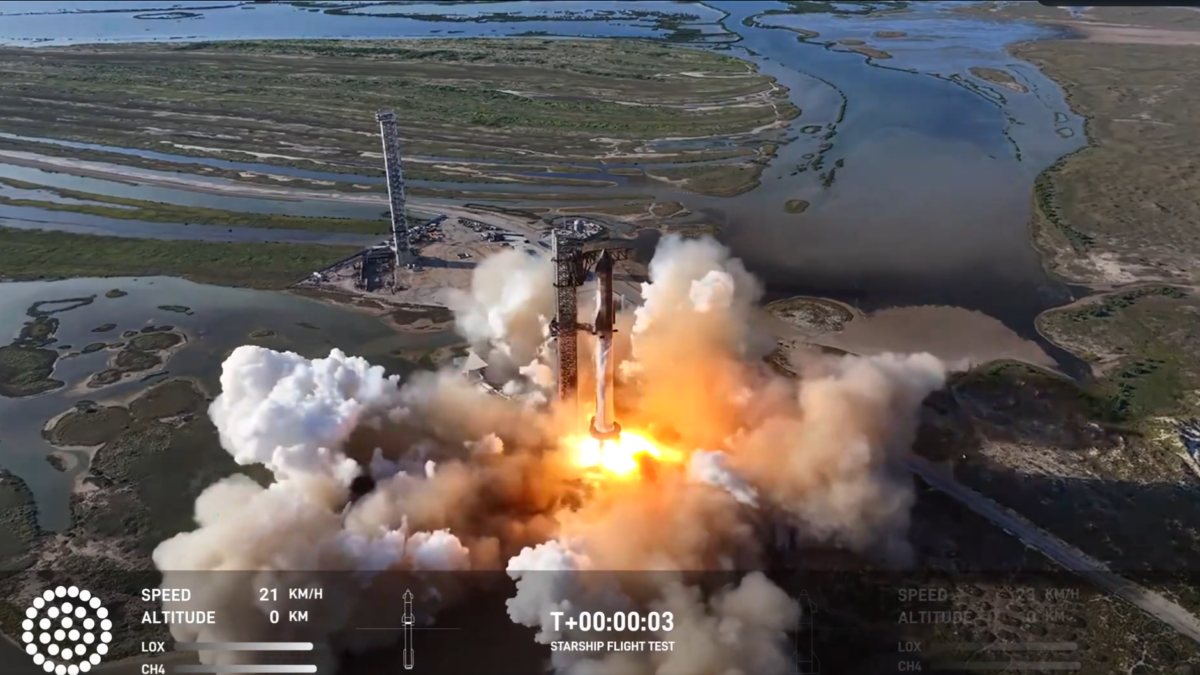
While it did not recreate the historic Super Heavy booster catch it pulled off last time, SpaceX continued to push the envelope during the sixth test flight of its Starship spacecraft.
The largest and most powerful rocket ever built lifted off from SpaceX’s Starbase launchpad in Texas on Tuesday evening, Super Heavy’s 33 Raptor engines creating a ball of flame in its wake. For the first time, Starship reignited one of its six Raptors in orbit, demonstrating a capability that NASA will need to return astronauts to the moon during the Artemis III lunar landing.
During that mission, scheduled for 2026, a human landing system (HLS) variant of Starship will make a pit stop at an orbiting propellant depot, fueling up before flying to near-lunar orbit. There, a NASA Orion capsule carrying the astronauts will dock with it, and two of them will ride the HLS down to the moon’s surface.
NASA Administrator Bill Nelson offered his congratulations to SpaceX for achieving the engine relight, which will help Starship perform deorbit burns on future missions.
“Exciting to see the Raptor engine restart in space—major progress towards orbital flight,” Nelson wrote in a post on X. “Starship’s success is #Artemis’ success. Together, we will return humanity to the Moon & set our sights on Mars.”
Flight 6 was intended to feature SpaceX’s second go at catching the Super Heavy booster using a pair of metal “chopstick” arms, attached to a tower at Starbase the company has dubbed Mechazilla. The company pulled off the unprecedented maneuver on its first try. But this time, an automated health check of Mechazilla’s critical hardware triggered an abort. Super Heavy instead made a preplanned course adjustment and splashed down softly in the Gulf of Mexico.
By catching and returning them to the same pad from which they launched, SpaceX hopes to reduce the turnaround time for Starship and Super Heavy—both of which are fully reusable—from months to days, or even hours. It’s akin to landing a small building, slowing from supersonic speeds, within a fraction of an inch of the target.
SpaceX CEO Elon Musk on Tuesday said Starship will make one more water landing before the firm attempts to catch it with Mechazilla.
Successful ocean landing of Starship!
— Elon Musk (@elonmusk) November 20, 2024
We will do one more ocean landing of the ship. If that goes well, then SpaceX will attempt to catch the ship with the tower. https://t.co/osFud7XXPo
Flight 6 should move the company closer to that goal. SpaceX stripped several of Starship’s heat shield tiles in spots where “catch-enabling hardware” could later be added. It performed thermal tests and approached the rocket’s splashdown in the Indian Ocean with a more aggressive angle of attack.
“Data gathered…provides invaluable feedback on flight hardware performing in a flight environment as we aim for eventual ship return and catch,” SpaceX said in an update on its website.
SpaceX as early as March hopes to demonstrate the transfer of cryogenic liquid hydrogen and methane between two orbiting Starships—another key step toward Artemis. The maneuver, which has never been attempted, would allow a tanker variant of Starship to fuel up the orbital propellant depot. If all goes to plan, SpaceX could land an uncrewed Starship HLS on the lunar surface by year’s end.
Of course, Musk’s ambitions extend beyond the moon. By the SpaceX boss’ estimate, Starship will fly to Mars within two years. The company this week reiterated that timeline and revealed it began putting Starship hardware through a simulation of the Red Planet’s atmosphere.
Editor’s note: This story first appeared on FLYING.

